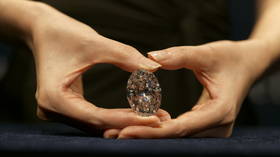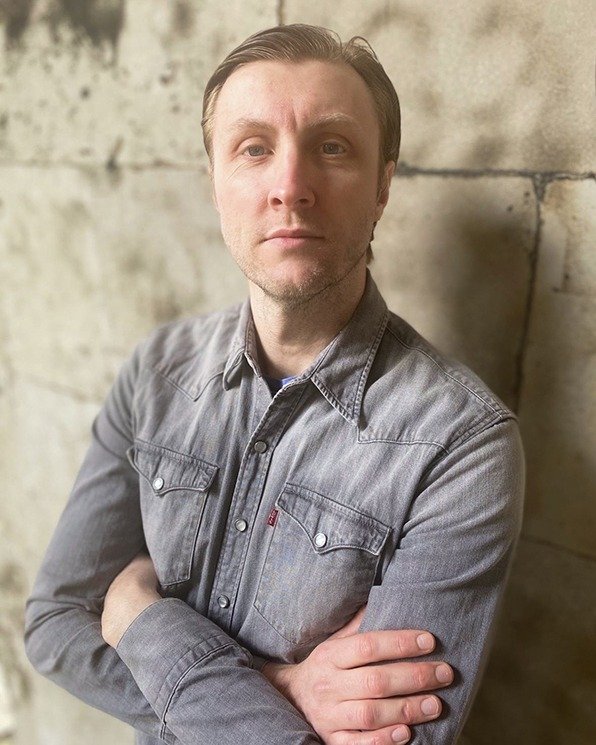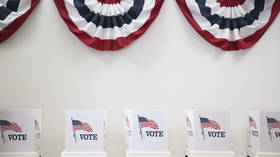Conflict diamonds may be virtually extinct in 2021, but your sparkler could still be a blood diamond financing rogue regimes

Many consumers don’t know that their supposedly ethical lab-grown and mined stones could be part of a shady, toxic and unethical industry which only looks to be getting worse.
There’s a push towards lab-grown diamonds, 7 million carats were produced last year, but mined diamond production was still far greater at 111 million. The world’s biggest jeweller recently announced it would only sell lab-grown diamonds. Mass market brand Pandora switched for ethical reasons and also because the price is about a third of the ‘real' thing.
According to supporters, buying only artificial diamonds is the way forward. For years, the glittering stones were plagued by the ‘conflict diamond’ scandal, which was supposedly resolved in 2003, with the advent of The Kimberley Process (KP). It’s a system of certification for diamonds, which is transparent about where the gems come from and it removes what are deemed problem stones from the industry.
Also on rt.com Crypto per carat! Sotheby's to accept cryptocurrency for diamond auctionMost of the public is unaware how specific the definition of a conflict diamond is: a rough, uncut stone used to fund rebel groups to undermine governments. The KP has used very effective marketing and there is almost universal acceptance that it prevents the flow of 99.8% of conflict diamonds. On that basis, it’s an open-and-shut case, if you are worried about being green or are short on cash, buy lab-based stones (although, they have almost zero resale value). And if you want the real thing that holds more value and prestige, then you don’t have to worry as they are now ethically sound.
Sadly, it’s not that simple and consumers are walking into a multi-faceted trap even in 2021. The industry has long been a master at marketing beginning with De Beers’ iconic tagline, “Diamonds Are Forever”. The current spin in reaction to Pandora and other lab-grown statements has been to focus on the Africans who mine diamonds. The narrative being weaved is that by switching to artificial stones, consumers will destroy the livelihoods of communities who depend on the trade to maintain their way of life. The inference is, why should a righteous Westerner kill off an industry by opting for a cheaper, man-made equivalent?
This is where a closer inspection of the KP and the diamond industry is merited. Since conflict diamonds stopped being an issue 18 years ago, the assumption is that it’s a ‘clean’ industry.
However, the reality is anything but.
In May, British mining company Petra Diamonds paid £4.3 million ($5.97 million) to Tanzanian miners who suffered human rights abuses including being shot, beaten, stabbed, detained in filthy cells and handcuffed to hospital beds. The firm describes itself as an “ethical diamond seller” and insists agreeing to the settlement was "no admission of liability basis”. There is no suggestion that Petra Diamonds, which produced the flawless pink diamond on one of The Queen’s favourite brooches, has contravened the KP.
That’s the kicker.
Blood diamonds are plentiful in 2021 but are not the same thing as conflict diamonds. Many people have seen the Leonardo DiCaprio movie ‘Blood Diamond’ and assumed they are interchangeable, but a blood diamond is one that funds human rights abuses by companies, states and private groups.
Activist Sean Clinton said: “The industry keeps the public gaze focused on conflict diamonds in the mining sector and away from the highly lucrative trade in other blood diamonds, which continues below the public radar.”
The reality is that many progressive and ethically minded consumers may be wearing one of these stones, even if it was bought in an upstanding store in a city like New York or Paris.
Stanford University’s Stephen Press explained: “Most diamonds cannot reliably be traced to their origin. Moreover, they can be cut, reshaped, or reclassified in registers in order to obscure their origins, whether illicit or licit. Consumers broadly don’t appreciate the extent to which this is possible. Smugglers and governments have methods to get around detection.”
He continued: “Personally, I would never be confident a diamond is not a conflict or blood diamond – whether the diamond was a known antique, or advertised as responsibly sourced, or anything else."
To obtain KP approval for a diamond, the narrow definition of conflict diamond has only to be fulfilled. A government committing human rights atrocities would pass unfettered, as would a private firm that abuses the environment or the condition its workers are placed in. The KP is well aware of this and attempted to address the issue with its 56 members.
At a meeting hosted by Russia weeks ago, these attempts were hijacked by China, India, and Angola primarily then backed up by South Africa, the DRC and Zimbabwe. This was recorded in a public letter by Shamiso Mtisi, the deputy director at Zimbabwe Environmental Law Association, on behalf of the KP Civil Society Coalition. It also listed a litany of alleged offences including dogs being set on people by security guards in Zimbabwe’s Marange diamond fields, protests over villages being destroyed in Angola to make way for mines and the water sources being polluted along with locals forcibly removed from their homes in Koidu, Sierra Leone.
All of these diamonds are KP compliant.
Also on rt.com Russia’s Alrosa sees nearly tenfold surge in diamond sales amid growing demand from IndiaThe reason some countries obstructed the widening of the conflict diamond definition at the recent meeting is money. The diamond trade is worth $80 billion annually, enabling officials and businesses to earn handsomely. Only one country, the Central African Republic (CAR), is under a KP embargo. But even that isn’t an issue as it’s estimated 90% of diamonds are smuggled out to nearby KP-certified nations. Due to the poverty and lax security in the CAR, this is not a particularly arduous task.
This then introduces another area that consumers are unaware of.
Traditionally, Antwerp, Belgium has been the centre of the diamond world, where stones were shipped for cutting and polishing. However, the high level of regulation and standards following KP created an opportunity for others. Dubai in the United Arab Emirates (UAE) has stepped in and has very quickly become the third-biggest importer of diamonds. It did virtually no business in the 1990s but by 2019, its diamond trade generated over $20 billion. It has been able to do this by offering use of its free trade zone, 50-year tax exemptions and relaxed inspections.
A big problem is that diamonds from various African countries arrive in Dubai, but under KP rules, the certificate for the batch can be classified as “mixed origin” and once that happens it’s impossible to know where each individual stone originated.
It’s an open secret that checks in Dubai are not up to what would be expected in Antwerp. To illustrate how toxic the diamond industry is, Antwerp's diamond industry is shunned by banks.
A report by IPIS stated, “In the words of the Antwerp World Diamond Centre, this makes Antwerp the only relevant diamond trading center that is entirely isolated from access to its domestic banks.”
The banks they do use are National Bank of Fujairah (NBF), which, like Dubai, is in the UAE. Shareholders include Fujairah’s government and the Investment Corporation of Dubai, owned by Dubai’s rulers. The other source of banking for Antwerp is the State Bank of India and Bank of India: both are nationalised.
Also on rt.com Giant diamonds, buried miles below Earth’s surface, could explain superdeep earthquakes, new study revealsIndia is also where 85% of diamonds are cut and polished in the Gujarat city of Surat. Another player in the trade and polishing process in Israel which exported $1.15 billion of net polished diamonds in 2020.
The links to this global chain are not as complex as they may appear. Diamonds are being mined in Africa under highly questionable circumstances. They are being smuggled, shipped out and issued with KP certificates. Then, once cut and polished, KP no longer applies and they are seen as ethical.
Antwerp handles 84% of the world’s rough diamonds, 50% of polished diamonds and 40% of industrial diamonds. So, any diamond in the world is likely to pass through there, which is funded by the UAE and Indian governments.
The Financial Action Task Force report from April states: "The risk of criminals being able to misuse legal persons in the UAE for money laundering/ terrorist financing remains high…the UAE has not implemented at national level a regime whereby sanctions for failing to provide information can be considered effective, proportionate and dissuasive.”
A similar report on India has been delayed until 2022 due to Covid-19, but there are already calls for the country to raise the bar on money laundering monitoring.
Financial impropriety concerns aside, the UAE government is regarded as committing human rights abuses on a wide scale in addition to playing a large role in the controversial war in Yemen.
Indian Prime Minister Narendra Modi is accused of passing anti-Muslim legislation, arresting academics and journalists who criticise his regime and using excessive force to silence dissent. And Israel is also in a similar position with condemnation for its treatment of the Palestinians and the illegal occupation of their land.
Also on rt.com RT reports from the thick of war in Central African Republic as Russian instructors aim to help local troops bring lasting peaceIronically, the September 2020 Abraham Accords brokered by Donald Trump has made Dubai even more powerful, which may be one reason why the UAE was so keen to sign despite condemnation. One Israel diamond trader said of plying his trade in Dubai compared to Antwerp: “I would have to do four or five trips to do what I can do in one tender here in Dubai.”
So, buying a diamond means money is flowing to all of these controversial regimes: the UAE, Israel, India and several autocratic African leaders.
Clinton added: “A significant percentage of the diamonds being sold in most if not all of the most highly regarded jewellery shops are directly and/or indirectly generating revenue for regimes guilty of gross human rights violations.
“For people under brutal occupation in Palestine or Kashmir the sparkling diamonds flaunted by the rich and famous on red carpets for the masses to desire are symbols of indifference to their pain and suffering which is ignored because the corporations and governments that have rigged the market value profit more than human rights and that’s the cold fact of the situation.”
The sad reality is, unless the entire system is updated, diamonds will always be tainted. And if sales of lab-grown stones keep increasing, it is likely to make the problem even worse, as it could see expensive regulation in Africa totally collapse due to financial pressure.
Also on rt.com Shine bright: Russia’s largest-ever cut diamond goes for $14.1 million at Swiss auction house after almost two years of polishingFilipe Calvao, associate professor in the department of anthropology and sociology at the Graduate Institute of Geneva, said: “Lab-grown diamonds are on target to outpace the mined industry in the near future. But caution is warranted in terms of figuring out its impact for African-producing countries, largely excluded from the lab-grown industry, as well as whether declining prices for natural diamonds would lead to the dismantlement of costly certification mechanisms.”
Diamonds look like being far from a truly ethical purchase anytime soon.
Like this story? Share it with a friend!
The statements, views and opinions expressed in this column are solely those of the author and do not necessarily represent those of RT.














